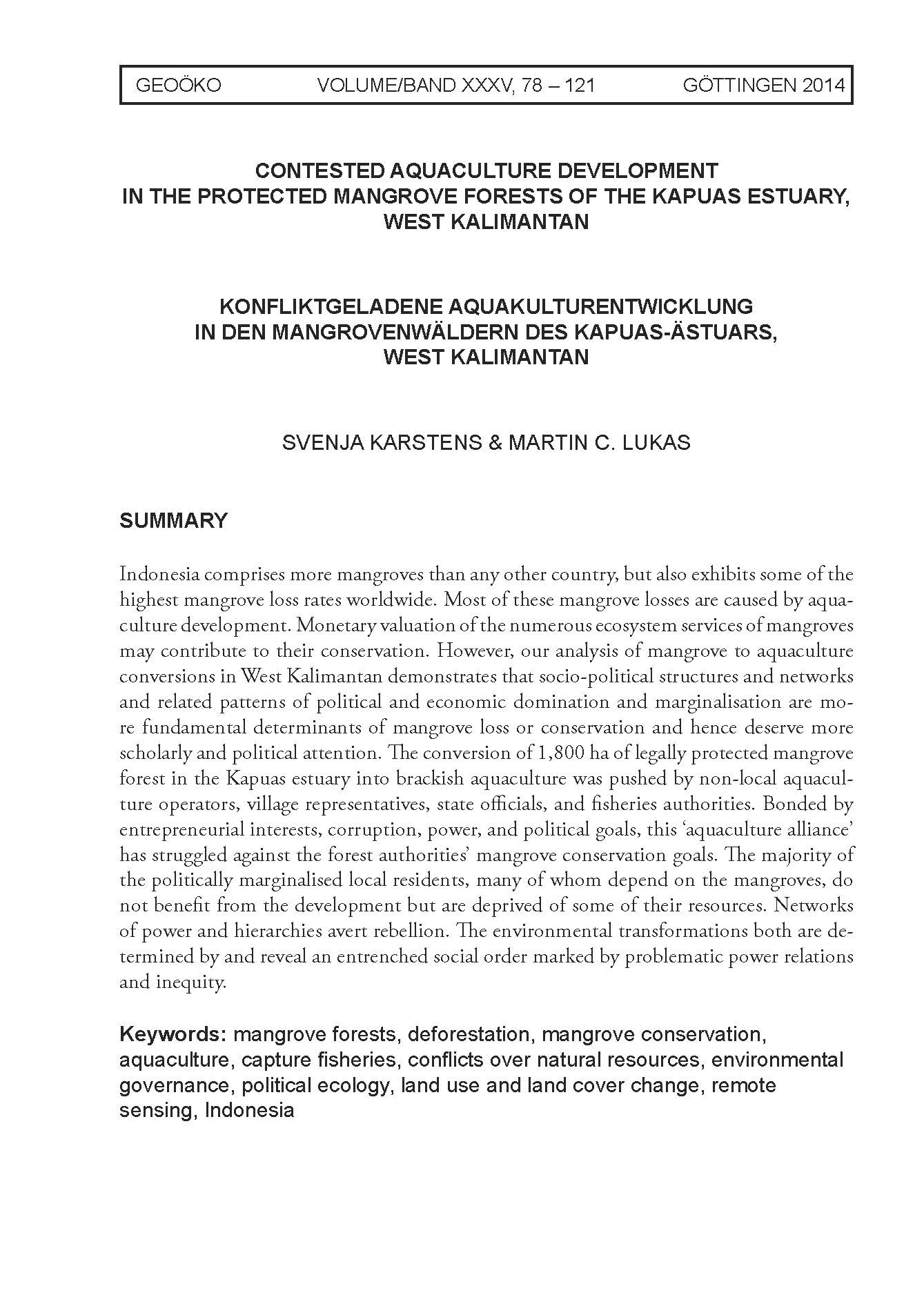Resource information
Indonesia comprises more mangroves than any other country, but also exhibits some of the highest mangrove loss rates worldwide. Most of these mangrove losses are caused by aquaculture development. Monetary valuation of the numerous ecosystem services of mangroves may contribute to their conservation. However, our analysis of mangrove to aquaculture conversions in West Kalimantan demonstrates that socio-political structures and networks and related patterns of political and economic domination and marginalisation are more fundamental determinants of mangrove loss or conservation and hence deserve more scholarly and political attention. The conversion of 1,800 ha of legally protected mangrove forest in the Kapuas estuary into brackish aquaculture was pushed by non-local aquaculture operators, village representatives, state officials, and fisheries authorities. Bonded by entrepreneurial interests, corruption, power, and political goals, this ‘aquaculture alliance’ has struggled against the forest authorities’ mangrove conservation goals. The majority of the politically marginalised local residents, many of whom depend on the mangroves, do not benefit from the development but are deprived of some of their resources. Networks of power and hierarchies avert rebellion. The environmental transformations both are determined by and reveal an entrenched social order marked by problematic power relations and inequity.

